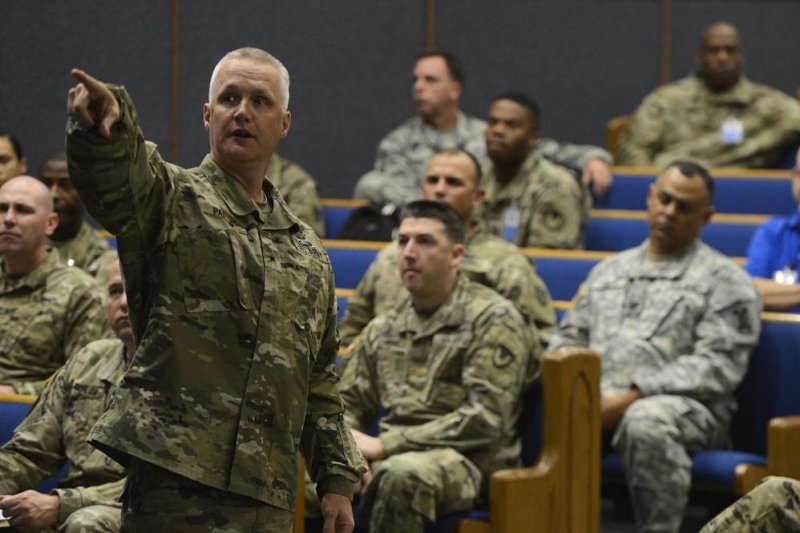Brig. Gen. Paul H. Pardew, U.S. Army Expeditionary Contracting Command commanding general, briefs the Soldiers participating in Operational Contract Support Joint Exercise-17 on the status of the contracting career field, March 17, 2017. Photo by Tech. Sgt. Chad Chisholm/U.S. Air Force.
ORLANDO, Dec. 1 (UPI) -- The U.S. Department of Defense, in collaboration with the National Security Technology Accelerator, launched a new Training and Readiness Accelerator, or TREX, this week at a defense industry conference.
TREX was unveiled at the Interservice, Industry Training, Simulations and Education Conference in Orlando, Fla., to members of all branches of the military and leaders in the defense industry.
TREX is a public-private partnership between the U.S. Army Contracting Command Program Executive Office of Simulation, Training and Instrumentation, or PEO STRI, and the Virginia-based NSTA meant to provide the Pentagon with a means to more quickly identify, test and deliver cutting edge technology to both defense and non-defense simulation sectors, the company said.
"TREX provides the government a streamlined platform to identify and refine technologies critical to training and readiness," said Brig. Gen. William Cole, the program executive officer at PEO STRI. "TREX will enable us to quickly get prototypes into the hands of soldiers for user feedback. This will better inform future material requirements, reduce development risk and expedite procurement of crucial technologies."
The National Security Technology Accelerator applies a multiple-step process that includes identifying Defense Department needs, issuing proposals, and detailing the final stage of delivering a prototype. Officials say the policy is designed to attract increased participation from non-traditional defense contractors.
"Innovation in the military can only move as quickly as our contracting processes will allow," said Joseph A. Giunta, Jr., U.S. Army Contracting Command Executive Director and Principal Assistant Responsible for Contracting. "ACC-Orlando is excited to execute use of this contracting tool to ensure that technology is developed and delivered more efficiently to the warfighter."















